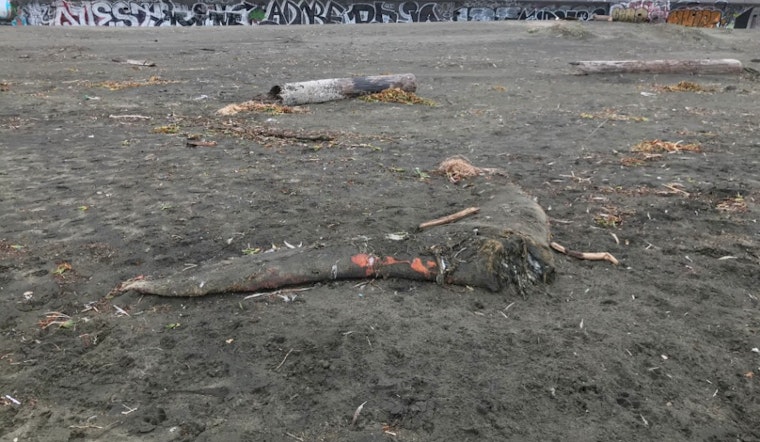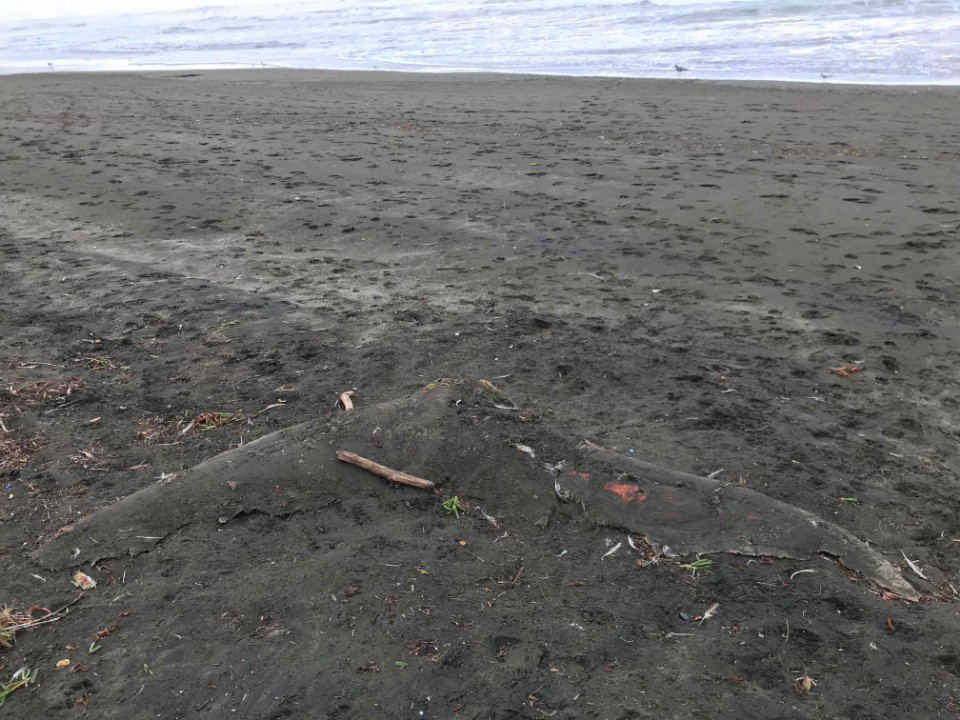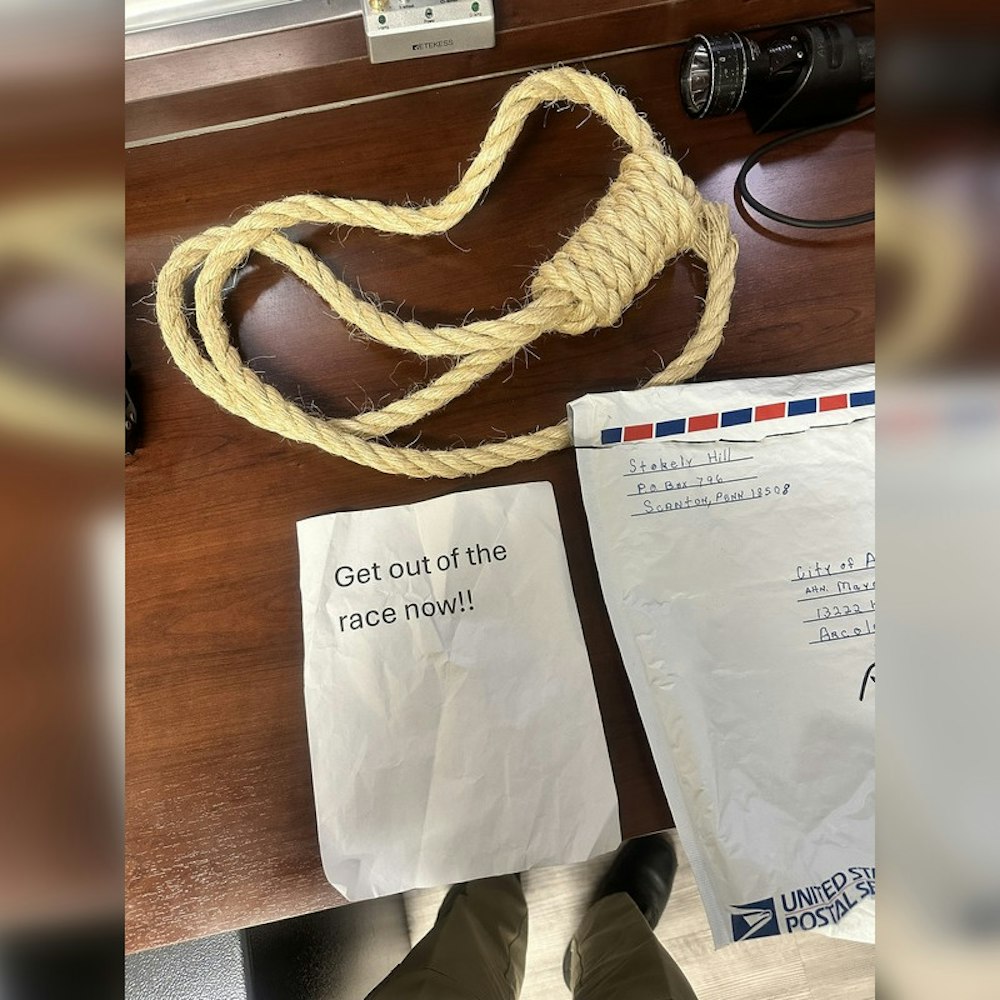
It's been the talk of Ocean Beach: a lone whale tail, resting in the sand about 50 meters from the seawall near Quintara.
With each of its flukes measuring about four feet long, spotting the tail is "pretty wild," wrote one commenter on Nextdoor. Other commenters have wondered how the tail became severed from the rest of the deceased whale, which is nowhere to be seen on the beach.
Severed #whale tail? At #OceanBeach (Pacheco) early this morning. @TMMC pic.twitter.com/5DZo49CaYy
— MalcolmYoung (@MalcolmYoung) January 9, 2019
But the tail is actually a repeat visitor to San Francisco's beaches. Experts say it likely belongs to the adolescent humpback whale found dead in the surf at Fort Funston last fall.
“The tail came off on its own," says Sue Pemberton, a curatorial assistant in the department of ornithology and mammalogy at the California Academy of Sciences. "It was pretty chewed up by post-mortem scavenging — by sharks."
Pemberton initially examined the Fort Funston whale carcass on September 20, at which point the tail was still intact. After being washed away by the tide, the tail, now separated, reappeared on shore in October, about 1.5 miles south of its current location.
Pemberton said it’s not uncommon for whales to break apart piece by piece, as “the ocean, and nature in general, is great at breaking down dead things.”
In fact, the same whale's skull — by now picked dry — can be found half-buried in the sand below the hang glider launch at Fort Funston.

As part of the Marine Mammal Stranding Network, the Cal Academy of Sciences collects data on all dead marine mammals found in the Bay Area, inspecting them for signs of trauma or illness.
32 feet long and of undetermined gender, the adolescent humpback was the only dead whale found on San Francisco's beaches in 2018.
Pemberton said the most common cause of early death for humpback and gray whales — who forage San Francisco’s coastal waters for mackerels and sardines — is being rammed by the bow of a cargo ship. Other causes of death can include entanglement with fishing lines and, for gray whale calves, predatory orcas.
But this whale probably didn't face any of those issues, Pemberton said. It just died young.
“It didn’t get out of the starting gate very well,” she said. “This just wasn’t its year.”

Like their living counterparts, dead marine mammals are protected by federal law, which means it’s illegal to take their parts. They can be reported to the Stranding Network by calling (415) 379-5381 or emailing [email protected].
Now that scavenging animals are through with the tail, “it’s probably just gonna lay there for a long time,” said Pemberton. “People can bury it.”








